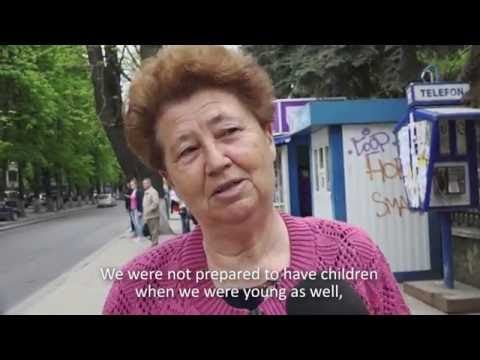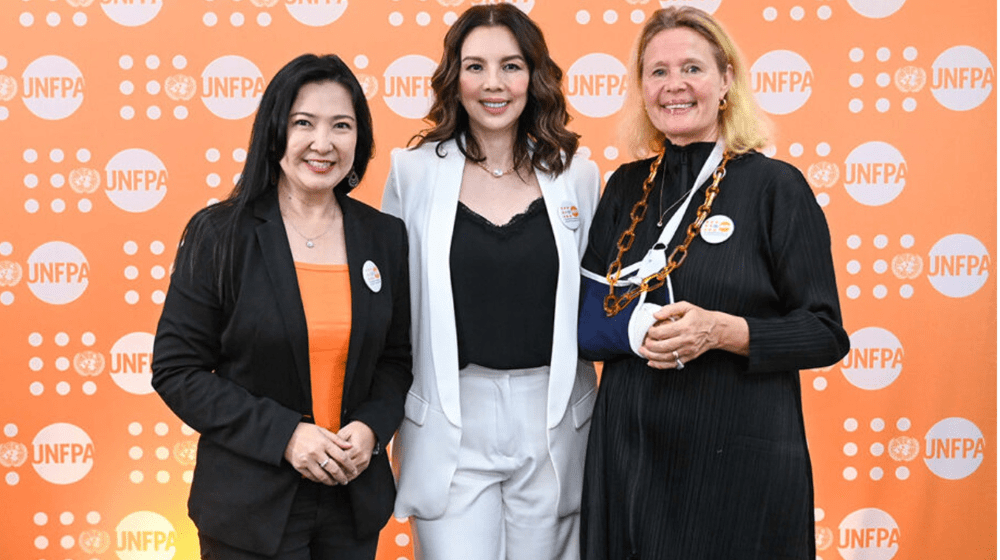“We won’t repeat the same history / Our course must change / To you and me being truly equal,” sings Thai music icon Christina Aguilar on her 1991 track, whose name translates to “History” in English.
The artist, cited as the first woman to sell more than 1 million records in Thai history as well as the country’s “Queen of Dance”, has long been an advocate for equality. However, her role as an activist has recently expanded to include a new title: UNFPA Champion for Thailand.
“I feel very honoured that they are trusting me in taking on this new role and to be part of the UNFPA family,” she said, according to Thai PBS World.
Below, learn more about what drew Christina to working with UNFPA and how art intersects with her activism. This conversation has been edited for length and clarity.
-----------------------------------------------------------------------------------------------------------------
What inspired you to get involved in activism on the issues of gender equality, gender-based violence and sexual and reproductive health and rights?
I have worked in the entertainment business for a long time. For all these years, and due to my personal interest on social issues, I’ve observed and learned about violence and movements towards gender equality in our society.
The more I see, the more I learn and the more I’m driven and passionate about taking action. I want to become an amplifier to raise awareness and make people realize these problems exist and they’re very severe. We cannot ignore them and we must work together, because every life counts.
What drew you to working with UNFPA?
I had the opportunity to meet with the Head of Office of UNFPA Thailand and learn about UNFPA's mandate.
The way UNFPA works with everyone – of every gender, group and age – to support them according to their needs and to narrow gaps around access to services and rights matched perfectly with my interests and intention to make our society a better, safer place and leave no one behind.
Can you discuss the role of your art, songwriting and dancing in your activism?
I’ve witnessed Thailand’s inequality problem for a long time. Thirty-two years ago, one of my famous dancing songs, “Prawatsat” – meaning “History” in English – talks about how men and women should rewrite their relationship history and change to ensure they are equals. Now, the world is more complicated with complex social issues including greater gender diversity.
Throughout my career, I’ve always promoted gender equality. I want everyone to pay attention to this important issue, and work hand-in-hand to solve the problem for our society.
What particular barriers do you see getting in the way of gender equality in Thailand, and what work do you feel should be prioritized to clear them?
Many people still ignore the problems of gender inequality and gender-based violence. Media is very important to raising public awareness on gender inequality and to promoting existing services and solutions to these problems, in accordance with UNFPA's objectives.

What are you most excited to do in your new role as Champion with UNFPA?
I'm very excited and honored to get to work with UNFPA. The more I’ve learned about UNFPA's development goals, the more I feel that UNFPA very much matches my interests and passion.
I'm very proud to be part of the United Nations family and the agency with a mandate related to sexual and reproductive health and rights, maternal health and gender equality.
What are your hopes for the 10-year-old girl that UNFPA seeks to serve, especially in Thailand?
I hope that every young person is able to live free from violence. And for those who have experienced violence, I hope that they can heal from that moment. I want to see the smiles in their eyes, and for them to receive good educations and live with warm, happy families.


